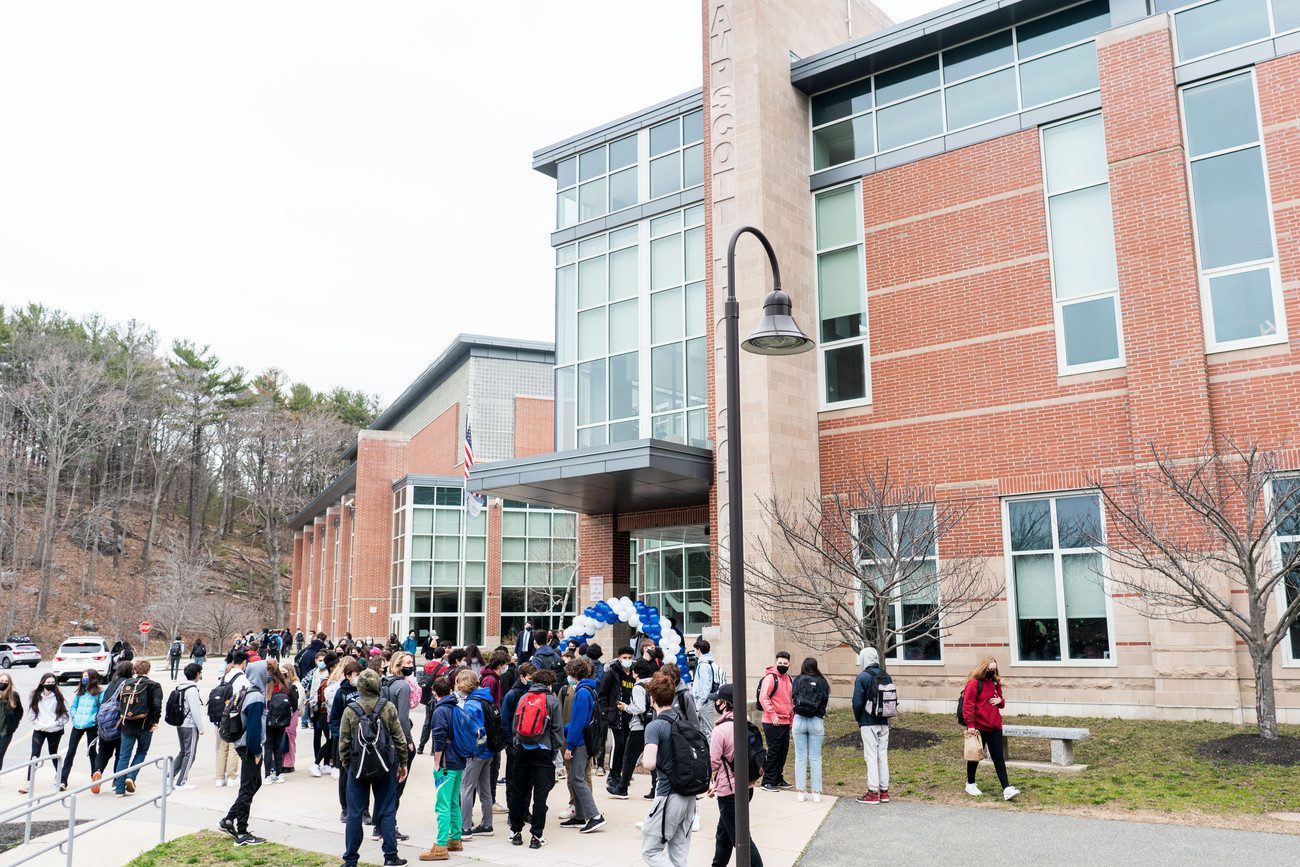SWAMPSCOTT — The School Committee is reviewing a controversial pilot program that would require students and teachers to keep their cellphones in magnetically locked pouches throughout the school day.
Swampscott Public Schools recently received a $30,000 grant from the state Department of Elementary and Secondary Education to implement a pilot program using magnetically locking phone pouches from the company Yondr for the 2023-24 school year.
“I think we are easily distracted. If I have my work emails on my phone and I’m not looking at my email here, but I see something come up, I get distracted and then am I really engaged in the meeting that I’m attending? I’ve done a little soul searching myself and simply put, learning requires concentration. The more barriers to complete concentration we can remove, the higher quality of learning we will achieve,” Superintendent of Schools Pamela Angelakis said.
The program, which aims to combat instances of cyberbullying and cut out social media’s perceived social and educational detriment on children and teenagers, prompted pushback from some students and parents who argued that the program will prevent students from calling for help in an active-shooter scenario.
According to School Committee Vice Chair John Giantis, more than 1,000 Swampscott residents have signed a petition urging the district not to adopt the pilot program.
At last week’s School Committee meeting, Swampscott High School junior James DeFilippi spoke in opposition of the program, pointing out that the district’s new active-shooter response protocol, I Love U Guys, was named after the final text message a school-shooting victim sent to her parents in 2006.
“I’ve lived with the fear of being shot while in a learning environment. These stories, along with all the lockdown and shooter drills, have grown with me and the other students since the very beginning of school. As we enter the most important part of our school career, our smallest comfort, being able to say goodbye to our friends and family, is being taken away from us,” DeFilippi said. “I honestly feel like you are more worried about me texting a little too much than me dying with a bullet lodged in my face.”
Addressing the concern that taking students’ and teachers’ access to cellphones away could impede safety during an emergency, Swampscott High School Student Resource Officer Brian Wilson, who responded to the St. John’s Prep swatting incident, said student cell-phone use during a lockdown can serve as a detriment to first responders, as it facilitates the spread of misinformation and can jam phone lines.
“As far as kids in classrooms when we were still clearing buildings when I got there, we could hear phones going off in buildings. I think that’s a major concern because if you’re an active shooter and you hear noise, that’s where you’re going to be drawn to,” Wilson said. “If there was somebody in the building we just didn’t recognize for a couple minutes, maybe a vendor, and students are starting to cause a stir by texting, I think it’s setting off an alarm that can be solved in four minutes, but instead we’re going to have 50 parents showing up at the school for something that was not an emergency.”
Still, Giantis and School Committee member Amy O’Connor spoke in opposition to program, arguing that teens should be taught to interact with technology responsibly to prepare them for life after high school and that a cell-phone ban would punish all students for the misbehavior of a few.
Giantis also echoed O’Connor’s comment that students who will be given accommodations to use their phones at school for legitimate reasons such as tuning musical instruments or tracking health conditions will, under the program, be singled out as “different.”
“This is another way that we’re really infantilizing our kids. I have a sophomore in college who we are hearing so much from their administration that there are lots of ways in which these kids are ill-prepared for adulting,” O’Connor said. “We look like people who just want to go back to the old days. And there’s a lot of things that are good about the old days, but there’s a lot that really isn’t.”
Swampscott High School teachers Peter Franklin, Susan Comparato, and Kaitlyn Thomas, on the other hand, wrote letters of support for the program to Angelakis, each stating that they’ve noticed cell phones’ negative impact on the classroom and on students’ social skills.
Thomas wrote that upon hearing about the Yondr program, some students ordered burner phones and equipment that can be used to unlock the pouches.
“What really concerns me is the phone usage during the downtime at school, in the hallway, study hall, lunch, etc. I watch groups of friends sit silently at tables while immersed in TikTok and other social media. I see students staring at their phones while walking down the halls, not noticing they walked by their best friends,” Thomas wrote. “Over the last decade, my relationships with my students have changed. They are less likely to come by to chat and I am less likely to know them.”
Although the pilot program was initially expected to begin Oct. 31, Angelakis said the district will likely delay its start date until after the district has heard from more parents, students, and teachers.

